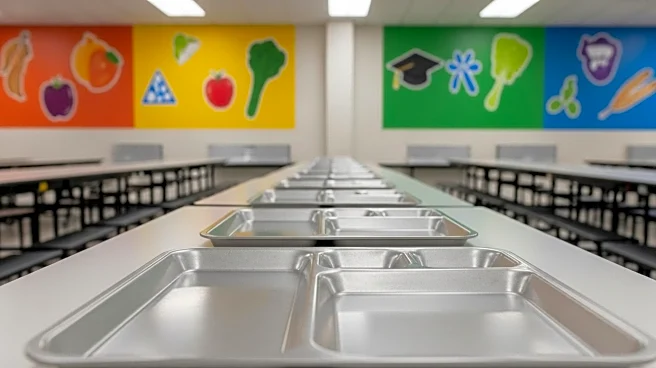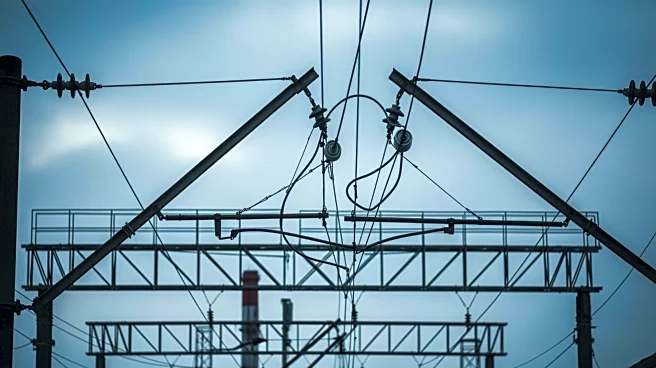What is the story about?
What's Happening?
Indonesia's free school lunch program, a key initiative under President Prabowo Subianto, has come under intense scrutiny following a series of mass food poisoning incidents. Over 1,000 children fell ill this week alone, adding to the 800 cases reported last week in West Java and Central Sulawesi. The program, which aims to provide nutritious meals to 80 million school children, has been linked to several food safety concerns. The head of West Java's Cipongkor Community Health Center reported symptoms such as stomach aches, dizziness, and nausea among affected children. The National Nutrition Agency attributed the recent poisoning in Cipongkor to a technical error by the Nutrition Fulfillment Service Unit, leading to the suspension of its operations in the area. Despite calls from NGOs to halt the program for evaluation, the government has stated there are no plans to stop it.
Why It's Important?
The free school lunch program is a significant part of President Prabowo's strategy to combat malnutrition and stunting among children, a condition affecting a fifth of Indonesian children under five. However, the program's implementation has raised concerns about food safety and potential corruption, given its $28 billion budget. The incidents have sparked anti-government protests and criticism from various stakeholders, highlighting the challenges of managing large-scale social assistance programs. The program's cost is notably higher than similar initiatives in other countries, raising questions about its sustainability and effectiveness. The situation underscores the need for stringent oversight and quality control measures to ensure the safety and success of such initiatives.
What's Next?
The Indonesian government faces pressure to address the food safety issues and evaluate the program's implementation. Stakeholders, including NGOs and health officials, may push for changes such as direct fund distribution to parents for meal preparation. The government must balance the program's goals with the need for transparency and accountability to prevent corruption. As the program continues, monitoring and adjustments will be crucial to prevent further incidents and restore public confidence. The situation may also prompt broader discussions on food safety standards and social assistance program management in Indonesia.
Beyond the Headlines
The controversy surrounding the free school lunch program highlights deeper issues of governance and public trust in Indonesia. The potential for corruption in large-scale initiatives poses ethical challenges, emphasizing the need for robust anti-corruption measures. The program's impact on President Prabowo's political standing could influence future policy decisions and electoral outcomes. Additionally, the incidents may lead to increased scrutiny of other social assistance programs, prompting reforms to ensure effective and safe delivery of services.














